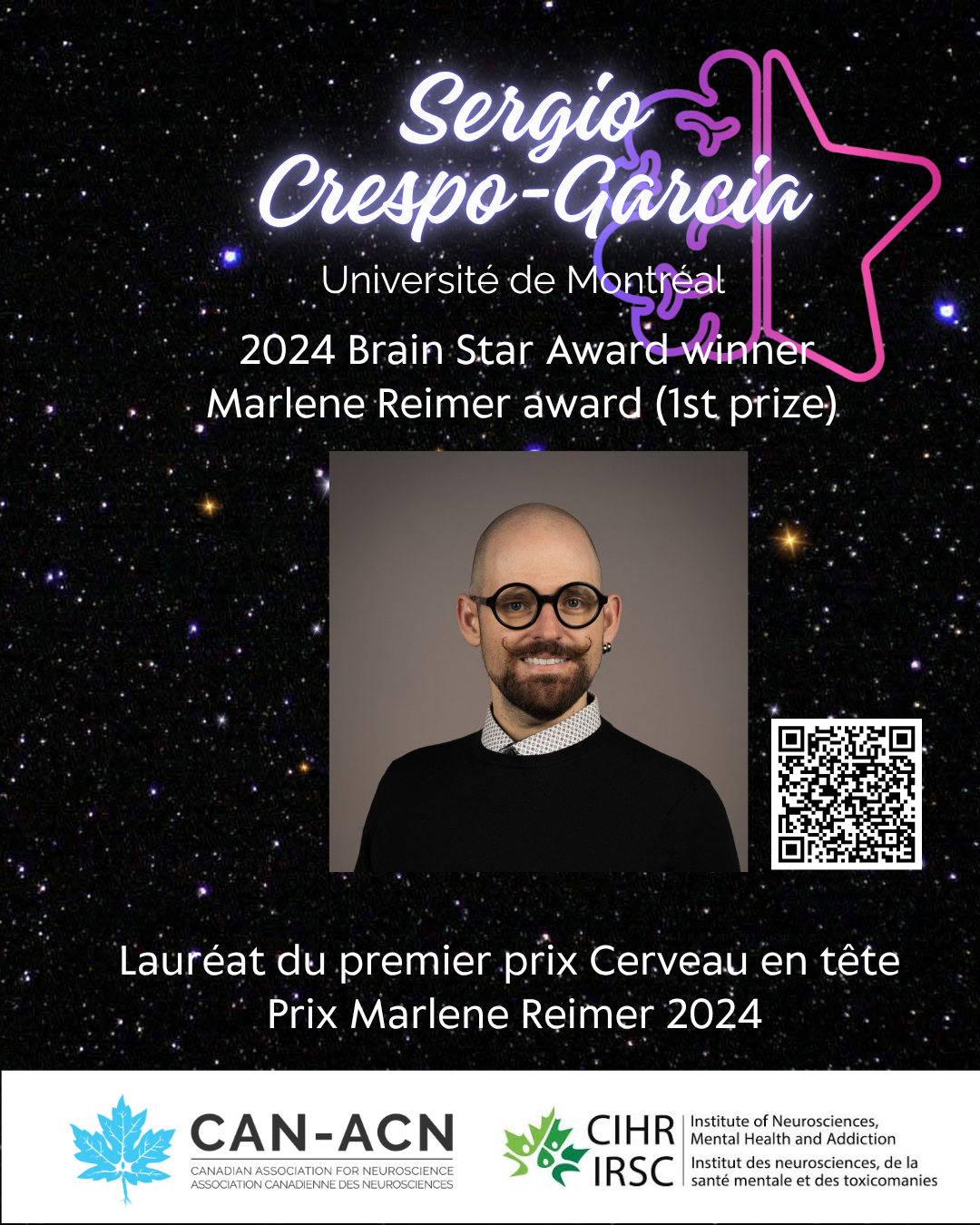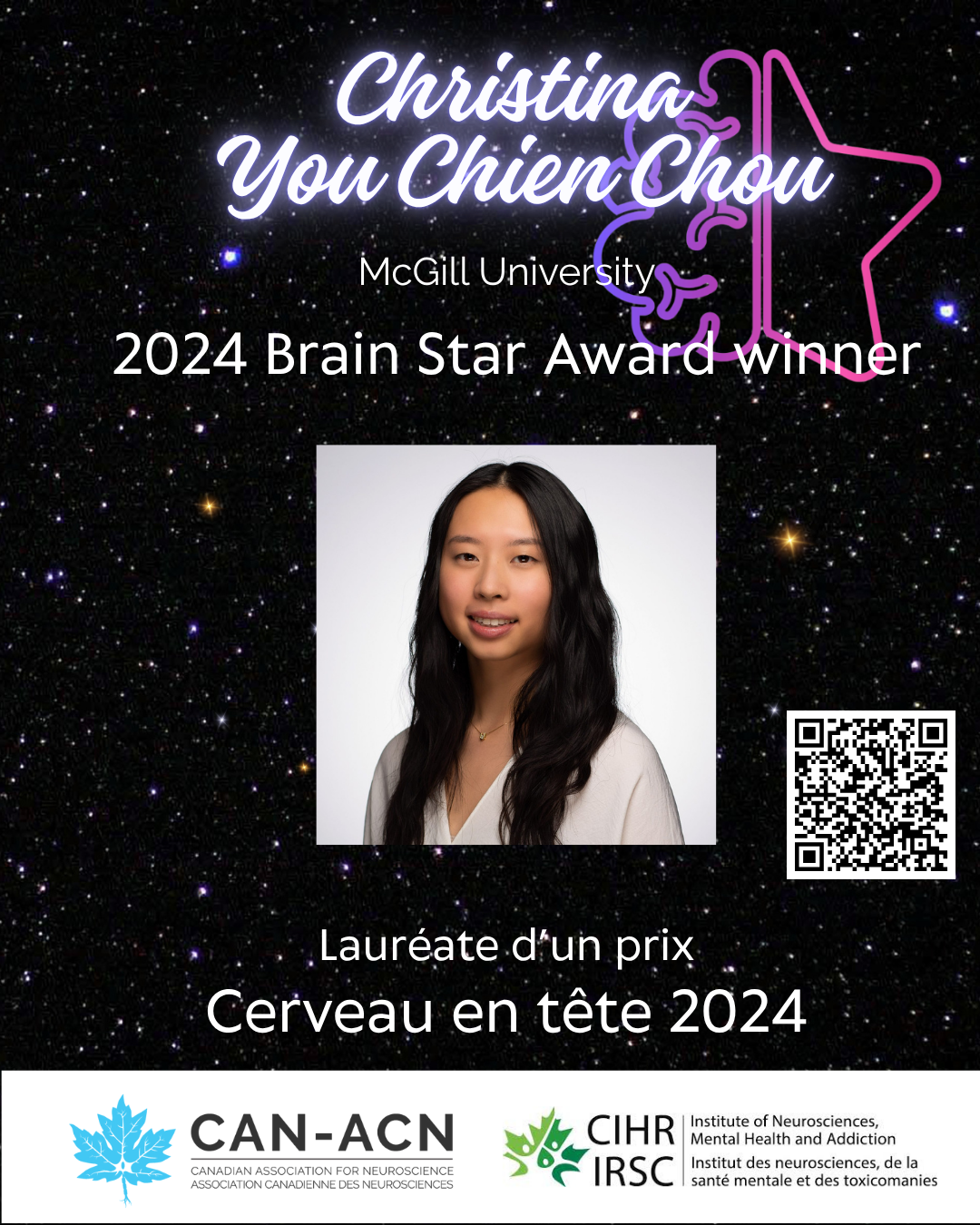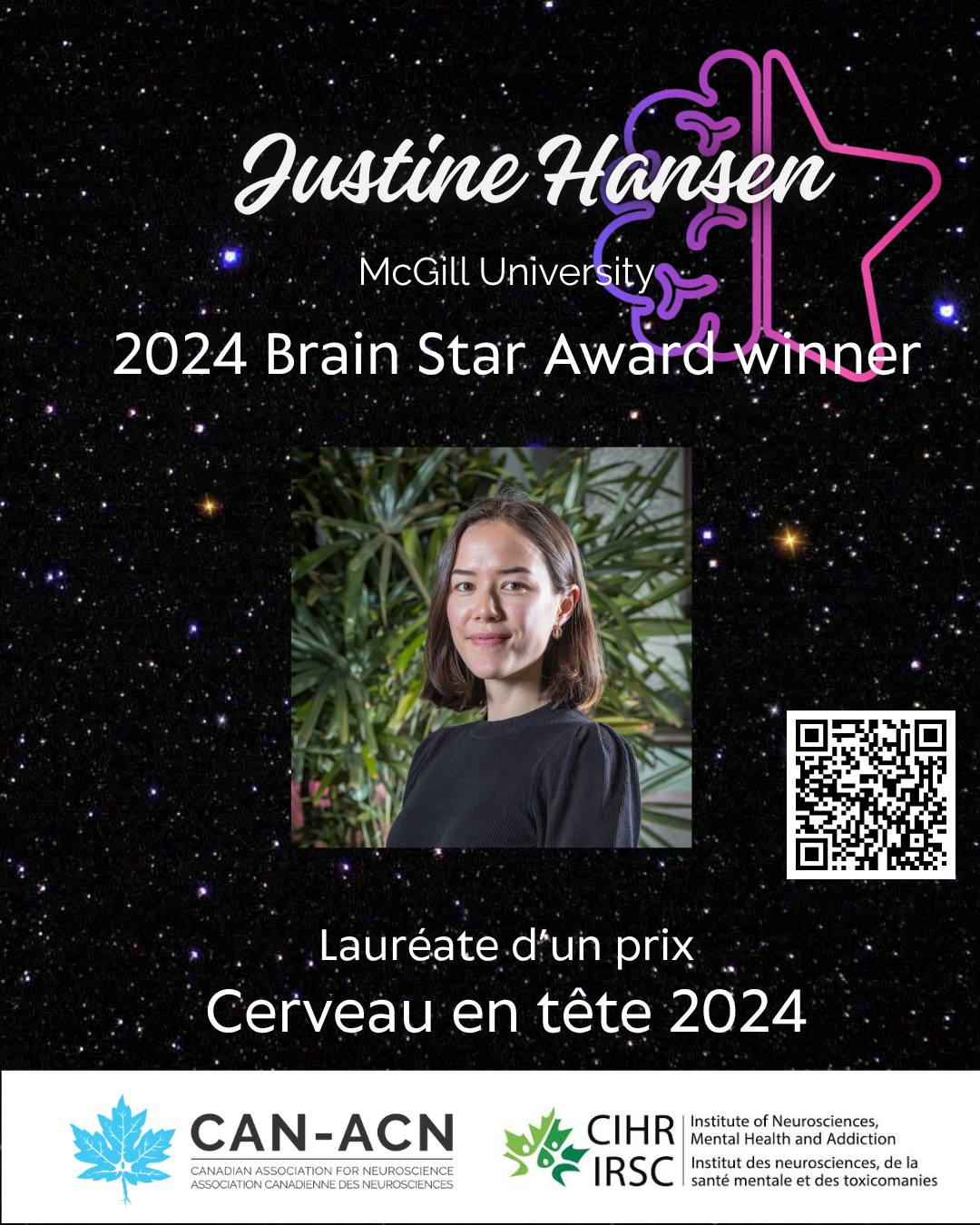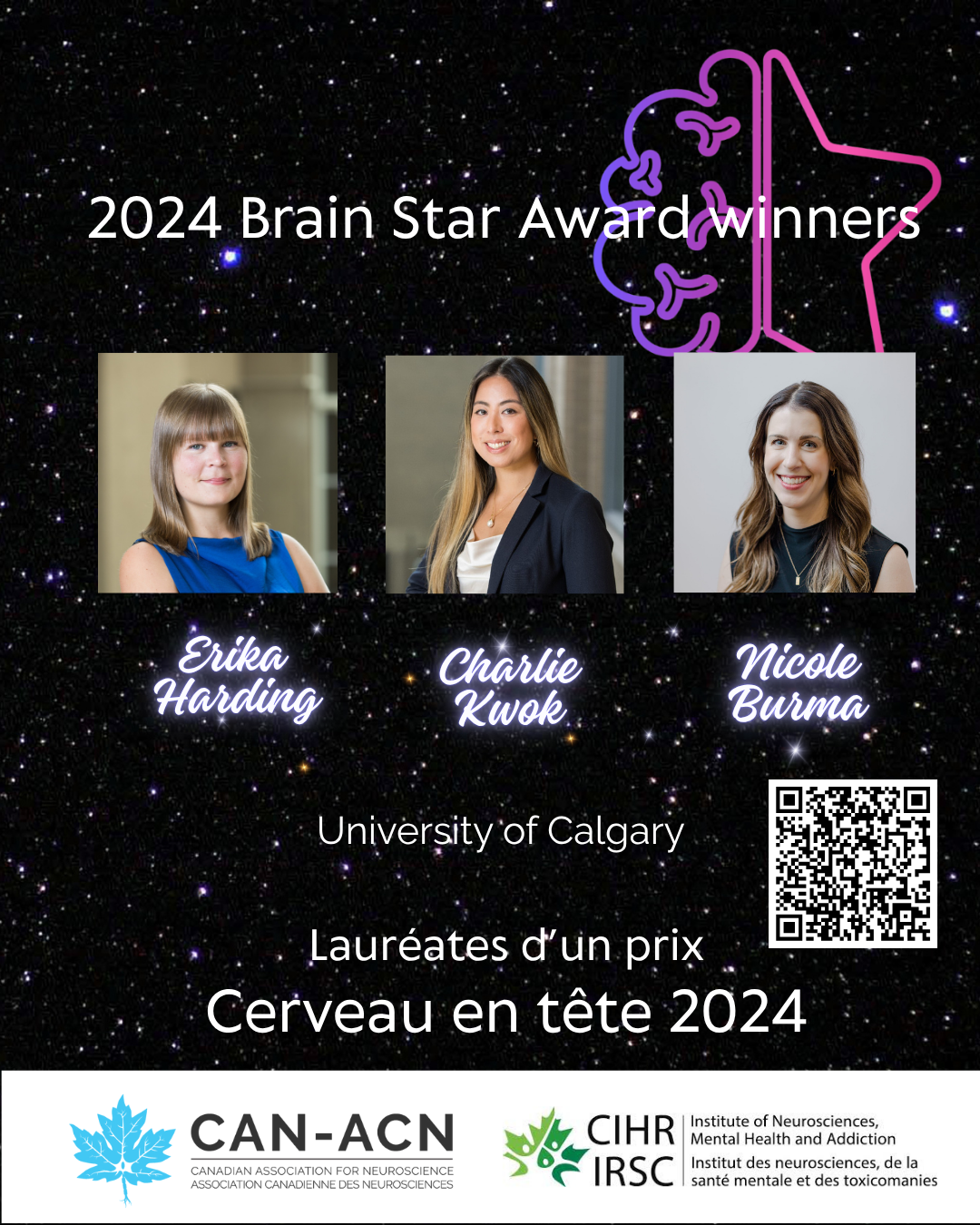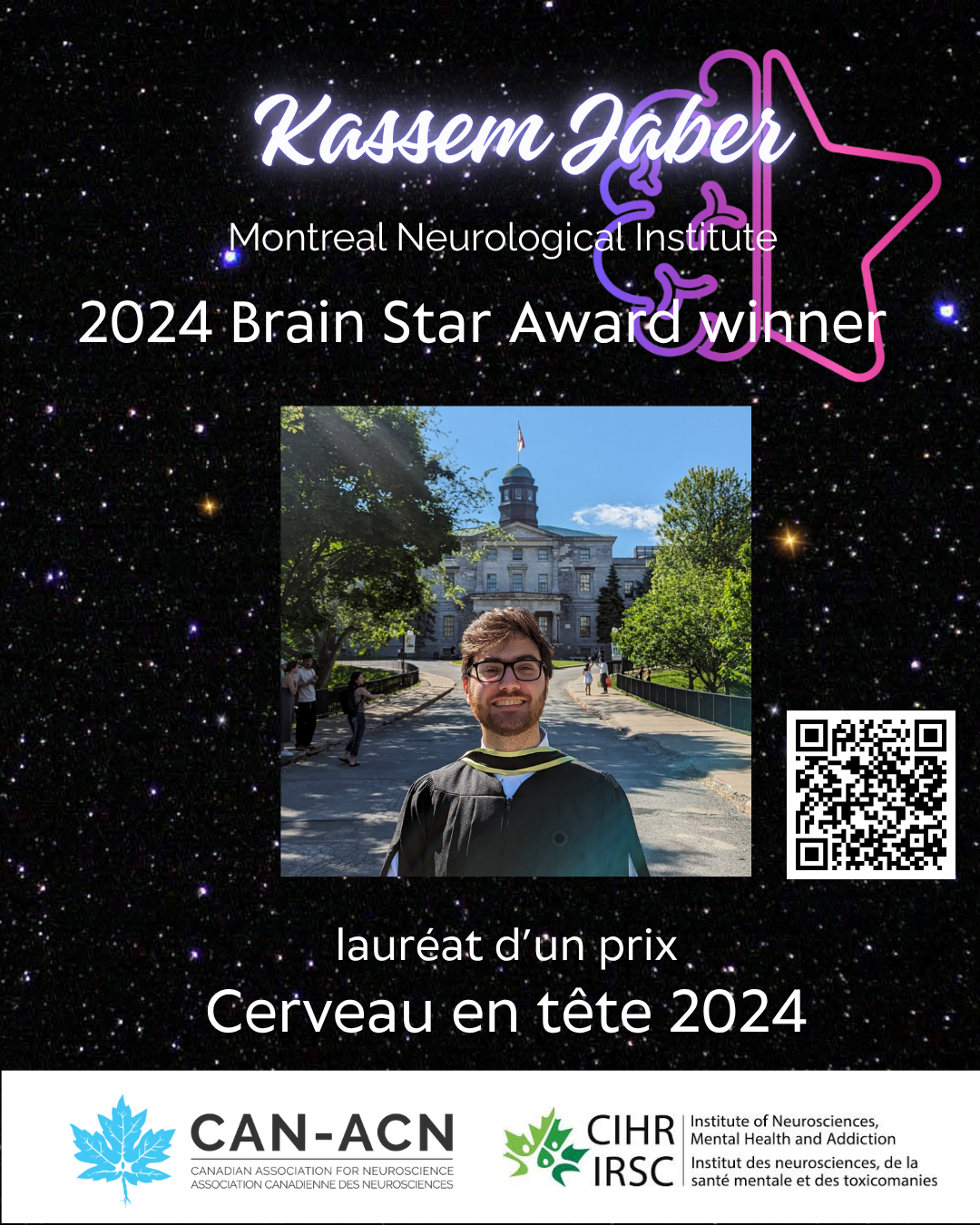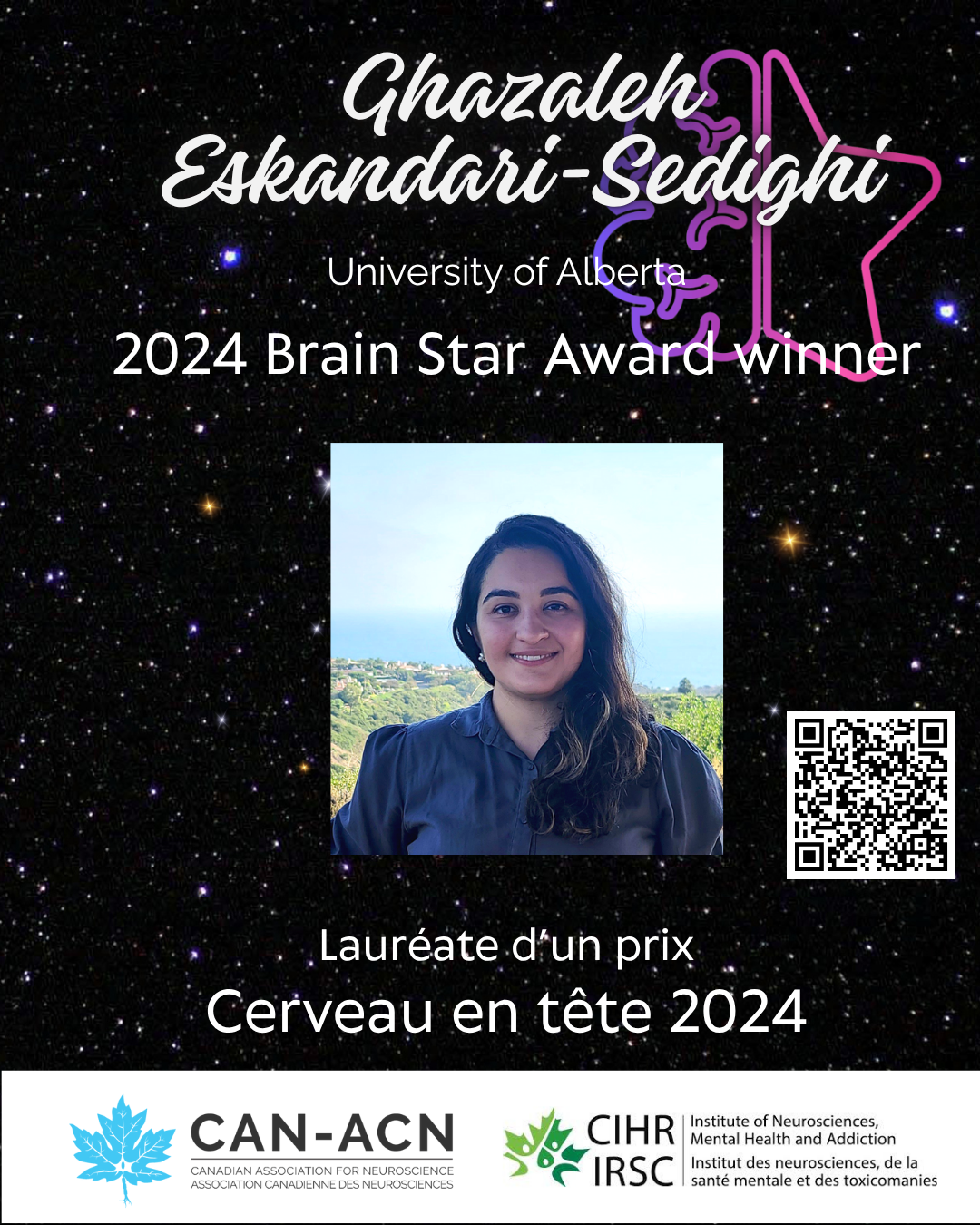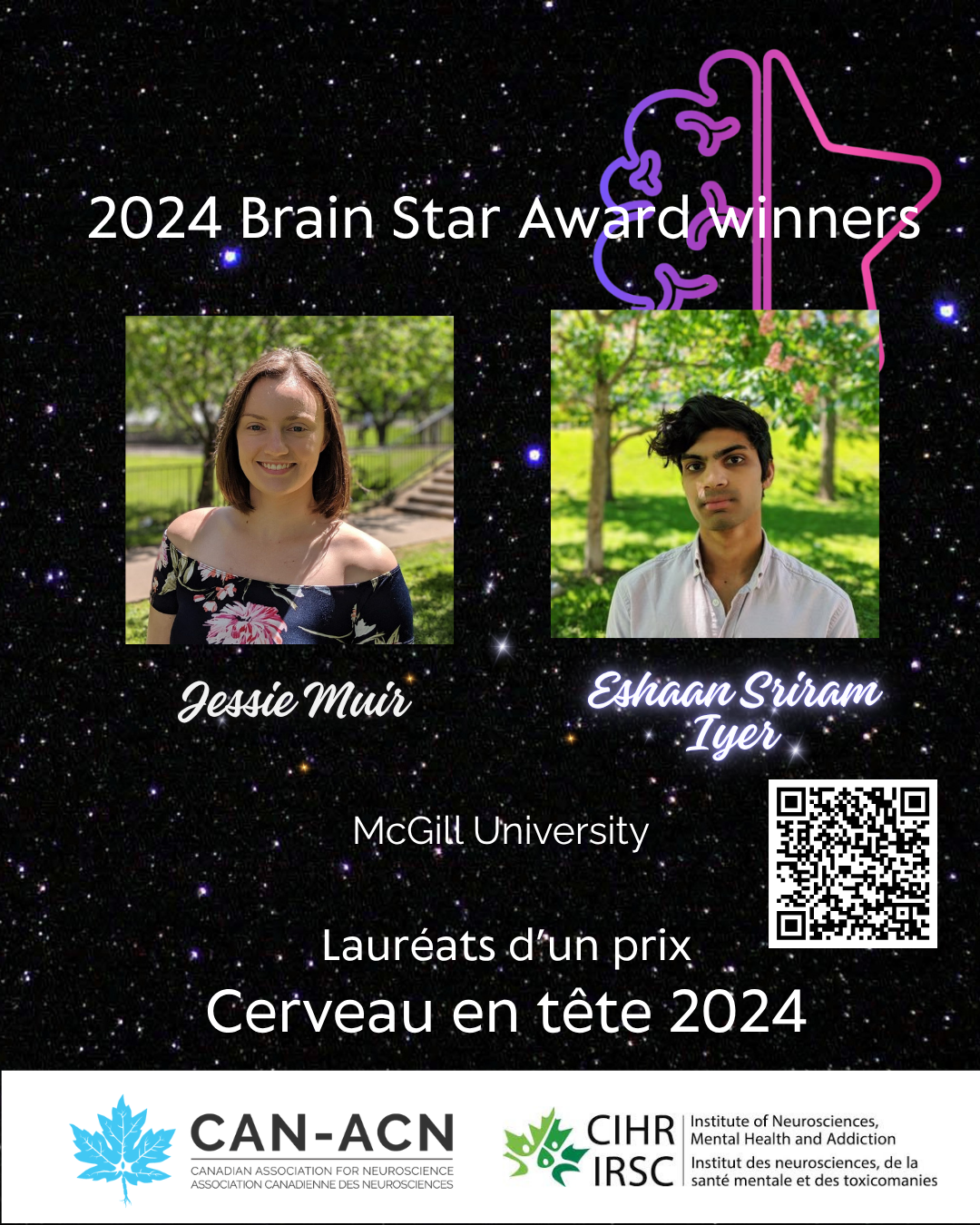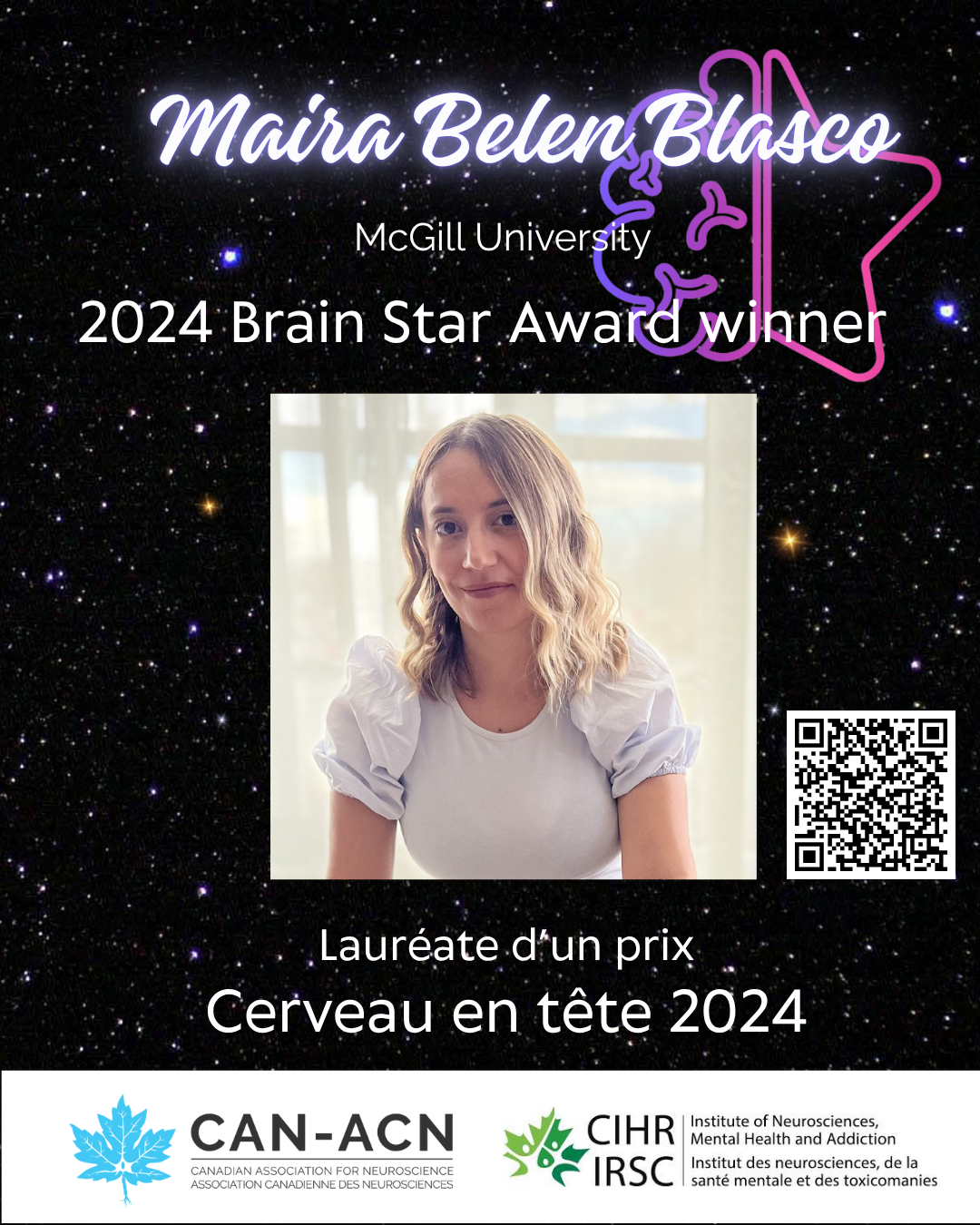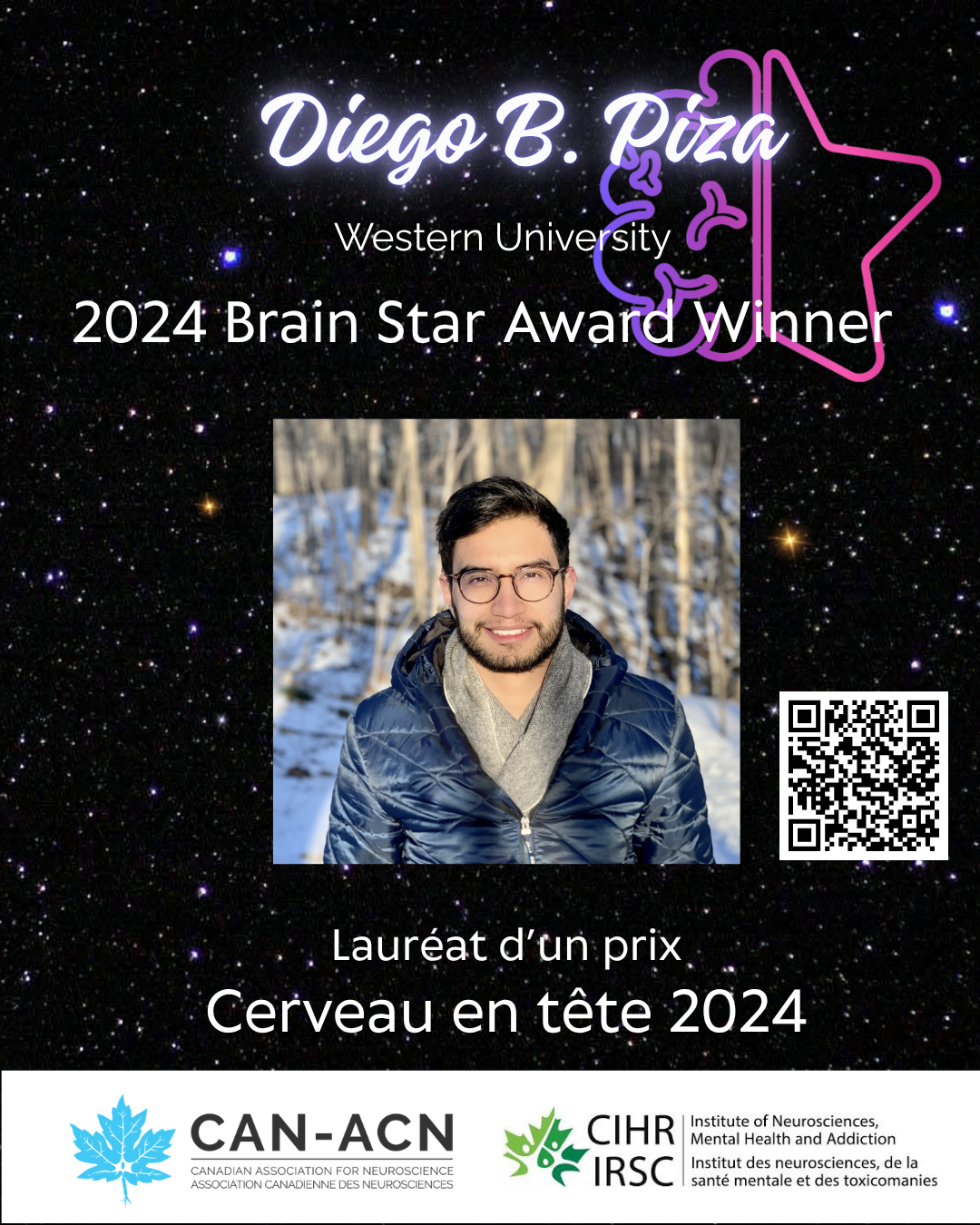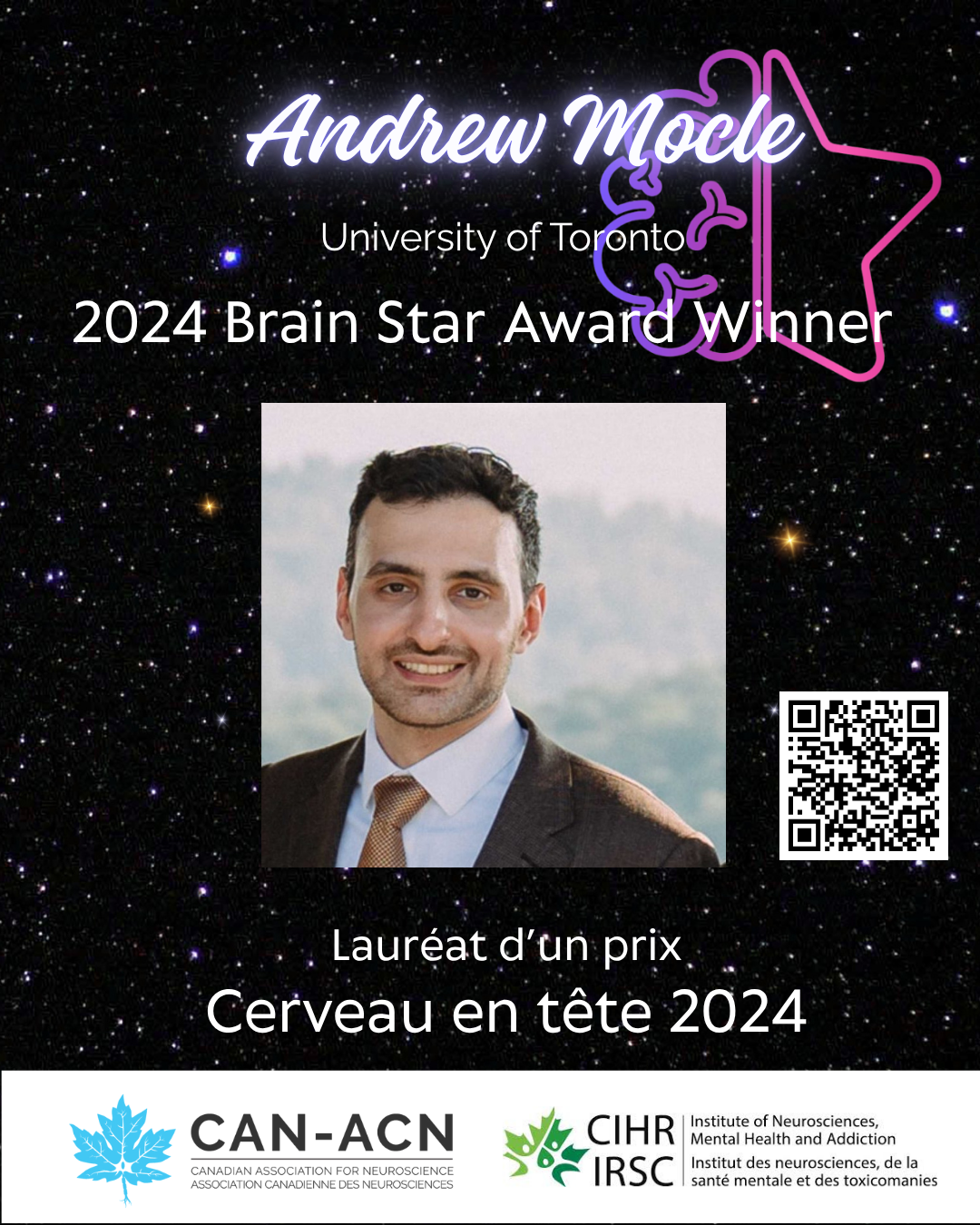Category: Expertise
-
Brain Star Award feature: Sergio Crespo-Garcia, Maisonneuve-Rosemont Hospital Research Center
As the last Brain Star Award Feature of this series, we are proud to present the first place winner of the 2024 competition, Dr. Sergio Crespo-Garcia. He is also the winner of the Marlene-Reimer Award for 2024. Congratulations! Discovery of a new therapeutic avenue to protect vision in diabetic patients. Diabetes is a silent epidemic…
-
Brain Star Award Feature: Christina You Chien Chou – McGill University
An optomapping approach to better understand connections in the visual cortex of the brain In the brain, information is passed from neuron to neuron via connections called synapses. Synaptic dysfunction unsurprisingly underlies many neurological diseases, such as autism, schizophrenia, and epilepsy. Understanding how synapses are wired up in a cell-type-specific way is fundamental to understanding…
-
Brain Star Award Feature: Justine Hansen, McGill University
Studying how the deepest regions of the brain contribute to brain activity The brainstem is a structure which is crucial for survival and consciousness, yet it is typically excluded from live human brain mapping efforts due to the difficulties in recording and analysing activity in this small region which sits deep at the base of…
-
Brain Star Award feature: Erika Harding, Nicole Burma, Charlie Hong Ting Kwok, University of Calgary
Identification of the Pannexin-1 channel in the brain as a target to treat opioid withdrawal symptoms Opioids remain one of the most effective analgesics, with 10-15% of Canadians receiving opioid prescriptions per year. However, opioids are also highly associated with substance use disorders and overdose related deaths. Last year alone, over 7000 Canadians passed away…
-
Brain Star Award Feature: Kassem Jaber, Montreal Neurological Institute
A new framework to assess placement of electrodes in the brain for epilepsy surgery Epilepsy is a chronic condition that is characterized by spontaneous recurring seizures. In clinical practice, the region which generates seizures is called the epileptic focus. The location of the focus can be localized by electrical measurement of brain activity, known as…
-
Brain Star Award Feature: Ghazaleh Eskandari-Sedighi, University of Alberta
Identification of CD33m as a new protective factor in Alzheimer’s Disease development. Immune cells in the brain, called microglia, are thought to be critical in Alzheimer’s disease (AD) development through numerous functions, including their ability to remove amyloid beta (Aβ), which is protein that accumulates in the brains of AD patients. In this study, Ghazaleh…
-
Brain Star Award Feature: Jessie Muir and Eshaan Sriram Iyer, McGill University
Discovery of differences in encoding threat discrimination in the brain of males and females Learning to predict threat is essential, but equally important—yet often overlooked—is learning about the absence of threat. This study by Drs. Jessie Muir and Eshaan Sriram Iyer, working in the laboratory of Dr. Rosemary Bagot at McGill University, looks at mechanisms…
-
Brain Star Award Feature: Maira Belen Blasco, Douglas Research Institute, McGill University
A reduction in the number of connexions between brain cells is seen in the early stages of psychosis and is associated with negative symptoms. Schizophrenia is a complex psychiatric disorder typically emerging in adolescence or early adulthood. It is thought to occur because of alteration in the maturation or pruning of connexions between neurons called…
-
Brain Star Award winner feature: Diego B. Piza, Western University
Better understanding the role of vision in the brain’s representation of space by studying freely moving primates The hippocampus is a structure of the mammalian brain that has been implicated in spatial memory and navigation. Its role has been primarily studied in nocturnal mammals, such as rats, that lack many adaptations for daylight vision. Here,…
-
Brain Star Award Feature: Andrew Mocle, University of Toronto
Better understanding how ensembles of neurons are recruited in memory formation. The hippocampus is a critical brain region for encoding and recall of episodic memories. The physical trace left in the brain by memory formation is called an ‘engram’, and the process by which new engrams are formed is still unclear. In this work, Andrew…

